The holidays came a little bit early for us here at Walnut Groovy. A week before Thanksgiving, we had the intense pleasure of interviewing the magnificent Melissa Gilbert . . . or, as she styled herself on the call, “the Artist Formerly Known as Half-Pint.”
In the best Walnut Groovy tradition, the conversation took about sixteen different directions simultaneously. For the most part I’m presenting things as they occurred. I’ve edited the transcript for clarity, and in one or two places to make myself look more articulate. (Melissa of course needed no such help.)
We’re grateful for the generosity and good humor of our interview subject – check out her new venture Modern Prairie! And we’re also grateful for all you readers who value Little House and the written word enough to make time for our recaps here. Happy holidays, and enjoy! – WK
***
WILL: Melissa Gilbert! Thank you so much, first of all, for talking with us. . . . It’s so strange to meet somebody you feel you’ve known since you were a small child, which is I think true for many of us on this call. Even for the kids, since we’ve made them watch Little House from the time they were very young.
MELISSA GILBERT: I love it.
WILL: Dagny and I are original fans, of course. But maybe we could start by introducing ourselves, if that’s all right.
MELISSA GILBERT: Please do!
WILL: Okay, so we’re gonna use our blog names. I’m Will Kaiser, and Walnut Groovy was my brainchild.
DAGNY: I’m Dagny, and the blog is not my brainchild.
WILL: But you are the talent.
DAGNY: Yeah, I’m just the talent. And the technical assistance.
MELISSA GILBERT: You’re a lot of talent, Dagny.
DAGNY: No. Oh, stop. Thank you.
MELISSA GILBERT: Like, no, seriously. I mean, the only reason we’re here is because you guys, your blog is hilarious. So brilliant.
WILL: That’s very kind and it really means a lot coming from you. The last thing that I expected for sure when I started it was that the star of the show would connect to us. So, thank you, we’re still riding the thrill from that day.
MELISSA GILBERT: Oh, good.
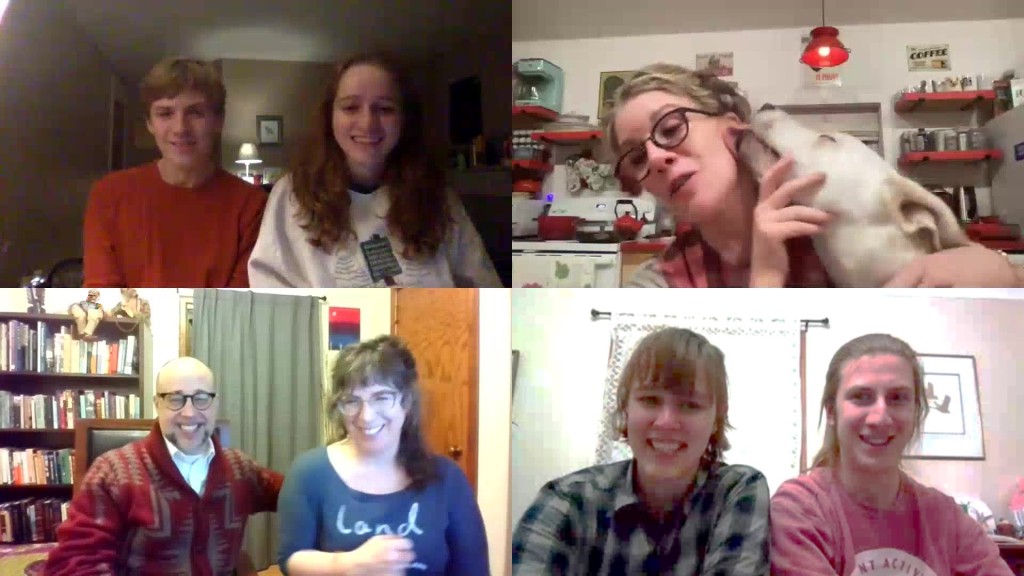
WILL: But okay. So kids, you wanna go ahead, maybe in order of age? Amelia, you can go first.
AMELIA: Hi there. I’m Amelia. And I made the trip home today for this from college in Iowa, so I’m very excited to be here.
MELISSA GILBERT: For this, not Thanksgiving?
AMELIA: Well. . . yes, but I skipped classes today for this. So don’t tell my parents.
MELISSA GILBERT: Okay, I promise not to say anything to them.
AMELIA: Thank you. I appreciate it.
DAGNY: Yeah, can she get a written note, please?
WILL: Oops, Amelia and Alexander dropped.
DAGNY: They’ll come back. Go ahead.
ROMAN: Hi, I’m Roman.
MELISSA GILBERT: Hi, Roman.
OLIVE: Hi, I’m Olive.
MELISSA GILBERT: Hi, Olive. And how old are you guys?
ROMAN: I’m sixteen.
OLIVE: Alexander and I are both seventeen.
AMELIA: I’m twenty.
MELISSA GILBERT [surprised at the close grouping of ages]: . . . MOMMY!
[laughter]
WILL: Yeah. We’re a blended family, not a religious cult or sex maniacs.
MELISSA GILBERT: Oh, okay, I get it, I get it.

WILL: Yeah, it is crazy around the house, but only fifty percent of the time.
MELISSA GILBERT: Yeah, we have the same. We have the blended family, and I actually have two with the same NAME. I have a son that I raised, technically my stepson, but my son Sam Boxleitner, whose middle name is Clifford. And then I have Sam Busfield, whose middle name is Clark. And so when they’re together, they call themselves “SCB Squared.” [laughs]
WILL: That’s great, so we’re not the only family that has code names.
MELISSA GILBERT: Oh yeah, and then we have . . . Tim’s daughter Daisy and my son Dakota are the same age. So they’re twins.
WILL: Yeah, step-twins.
MELISSA GILBERT: Yeah, step-twins.
DAGNY: Here’s something I feel I’m doing constantly, which is drawing family genograms for people to understand how we fit in within the context of the blended families.
MELISSA GILBERT: Yeah, I need that.
WILL: The blended family is a common thing these days, but it’s got its pluses, hasn’t it?
MELISSA GILBERT: It does, and I tell people that I don’t have a family tree. I have a family shrub.
[laughter]
DAGNY: I like that. The other day I did a family tree for Roman on an eight-and-a-half-by-seventeen piece of paper, and even with that I wished I had a longer piece of paper. And you’re never done, really.
WILL: No, just wait till grandkids come along. Alexander’s back now, why don’t you say hi since you got lost?
ALEXANDER: Ah, okay. My name’s Alexander and I’m seventeen.
MELISSA GILBERT: Well, hi.
WILL: Well, we really are just . . . I mean, like, my heart is beating very fast! But you took the time out of your busy life to talk with our little family, so we do have some questions for you.
MELISSA GILBERT: Okay!
WILL: So, first off, I’m not someone who has ever been to a Little House convention. I’ve just loved the show my whole life. And I thought, nobody’s really done anything quite like this blog. And it mystified me, because obviously Little House was made by some really, really smart people. I think it’s kind of underrated artistically. It’s feel-good, but there’s a lot to its universe, so I felt like nobody had ever done anything quite like this – looking at Little House the same way, like, a nerdy fan would look at Star Wars or Doctor Who or, you know, Star Trek or whatever.
MELISSA GILBERT: Right.
WILL: But since starting the blog I’ve engaged with a lot of Little House fans online.
MELISSA GILBERT: Yeah.
WILL: And you know what? Like, we’re living in an age where every fandom is plagued with toxic fans, right? Who hate each other, who ostensibly love the intellectual property they’re fans of, but do nothing but hate on each other and tell each other they’re watching it wrong. My question is, is that your experience of Little House fans?
MELISSA GILBERT: That they hate each other and they’re competitive? No, I don’t think so. I think our fans are different. They’re . . . first of all, they’re probably, sorry, no offense, all really OLD, by and large.
WILL: Ha! Well, yes and no . . .
MELISSA GILBERT: Well, multi-generational, but there’s definitely an older component that started it.
WILL: Yes. A cohort!
MELISSA GILBERT: Yeah, the cohort is usually a nana like me who grew up watching, who’s the same age as me, grew up watching me, and then brought her daughters and then – and sons – and then the next generations.
WILL: Brainwashing! Yes, like how, you know, some parents make their kids very religious. Others make them watch Little House on the Prairie.
MELISSA GILBERT: Yeah, or they make them watch Star Trek or whatever. But we’re not talking about those people. Nor will we ever.
WILL: . . . !

MELISSA GILBERT: But you know, there is maybe a little of that. I’m sure you know that the Little House diehard fans call themselves “Bonnetheads.” It’s not my name. I’ve heard it and have repeated it, but I didn’t make it, it didn’t come from us.
WILL: Yeah. Fandom is an organic thing.
MELISSA GILBERT: It is, and the Bonnetheads are very serious about their Little House on the Prairie. Now, there are a couple different TYPES of Bonnetheads. There are the book people, who read all the Little House on the Prairie books. Then there are the TV-show people –
WILL: Yeah, that’s us.
MELISSA GILBERT: – and then there are the hybrids, who read the books AND watched the TV show.
WILL: Yeah. I know some of those.
MELISSA GILBERT: Yeah. Me too.
WILL: Ha!
DAGNY: I bet!
[laughter]
MELISSA GILBERT: The fans are super-devoted. Having been married to a sci-fi guy in my past, I’ve been to sci-fi conventions, and like, the sci-fi fans and the stars are very . . . There’s a symmetry, but also a distance between the stars and the fandom.
[EDITOR’S NOTE: Bruce Boxleitner was in the Tron movies and on Babylon 5.]

MELISSA GILBERT: But the difference with the Little House fans is . . . they’re, like, cozy pajama people who feel like we all grew up together and so we just all know each other. So even though they may know me, they don’t realize I don’t know them.
DAGNY: Yeah.
MELISSA GILBERT: But the assumption is that I’ve just been there their whole life and we’re besties. We went to school together, and we’re best friends, and that’s just the way it is.
WILL: Yeah. Well, it’s a testament, I think, to how real these stories are to people.
DAGNY: Yeah. We all got bullied together, we all played marbles together, knocked someone off of a teeter-totter together. . . .
MELISSA GILBERT: Yeah, of course. Shoved someone down a hill in a wheelchair together! We’ve all done all these fantastic things together.
DAGNY: I’ve never shoved somebody down a hill in a wheelchair.
MELISSA GILBERT: Yeah. [laughs] What a violent show we made, oh my God!
[laughter]


WILL: Yeah, I know. Knocking teeth out – like, there’s a beating every other episode.
MELISSA GILBERT: Yes, I know.
WILL: Did any children actually die over the course of the series? Characters, I mean.
OLIVE: Oh my God, Dad, what are you talking about?
ROMAN: Yeah, kids die all the time!
WILL [laughing]: Oh yeah, what am I saying.
MELISSA GILBERT: [laughing] Yeah. At least one died.
WILL: Sorry, I’m a little nervous. And they didn’t always STAY dead! Like, Jason Bateman died, but he came back to life.
MELISSA GILBERT: Yeah. So he’s a zombie and he doesn’t count.

WILL: What’s your take on Albert dying? Did he really die? Because there’s, like, fan theories about that.
MELISSA GILBERT: Well, he’s another zombie. Because my narration had said he would grow up to be Walnut Grove’s doctor, and then we did the episode where he’s on drugs, and then in one of the movies he does die [of leukemia]. So he must have come back to life and become a zombie doctor.

WILL: We never saw a grave, though. I mean, not for Albert. Everybody else’s grave is on the playground.
MELISSA GILBERT [laughing]: I mean, there ARE graves on the playground, yes. We definitely sat on a swing that went over some graves.
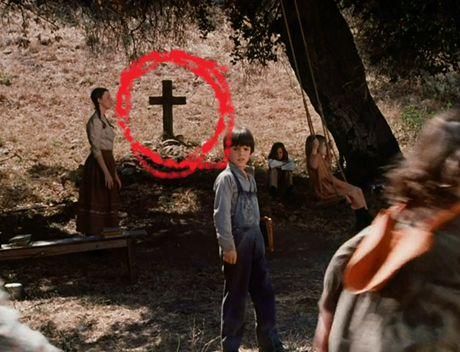
MELISSA GILBERT: And I will tell you we did do a . . . you kids are old enough. Yeah, you guys are old enough.
DAGNY: Oh, they’re old enough for anything.
WILL: Yeah.
MELISSA GILBERT: Okay. We did a funeral scene. I don’t remember who it was, what character it was that died, but they had a big microphone planted in front of one of the headstones. And Michael Landon looked down and went, “Oh well, that guy died happy!”
[laughter]

WILL: He’s everyone’s favorite TV dad. I used to wish that he was my dad, actually. I love my dad, but I used to wish that he was my dad and –
MELISSA GILBERT: Pa? Or Michael Landon?
WILL: No, that’s right. I wished that CHARLES INGALLS was my dad. And I grew up in the country, so my dad basically WAS sort of Charles Ingalls. He had a lot of Charles Ingalls qualities, but . . .
MELISSA GILBERT: But you wanted Pinky under your own roof.
WILL: Yeah, Pinky! Good old Pinky.
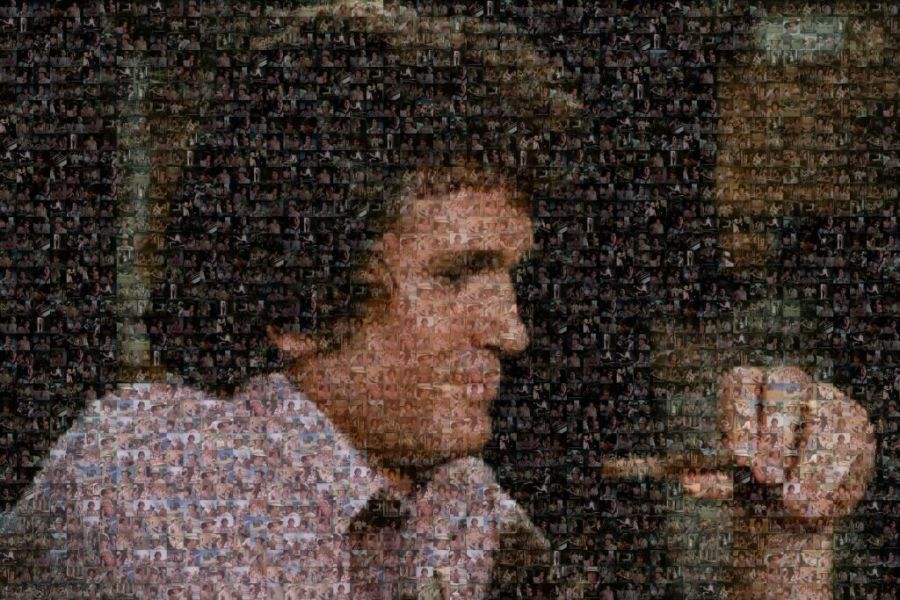
WILL: Speaking of which, did Michael Landon have a million pink shirts, or was it always the same one? Because he got blood on it quite frequently.
MELISSA GILBERT: Yeah, well, yeah, there is that. But his long-johns were pink, too, right? His onesie?
WILL: Yes!

MELISSA GILBERT: And weren’t his pajamas, too?
WILL: I’m kind of color-blind. But there is some pink in them, I believe.

WILL: We’ve noticed the men on the show actually wear a lot of, like, pinks and purples. What do you think that was about? Was it a 1970s thing, an 1870s thing, or just, like, a cool color?
MELISSA GILBERT: I think it’s probably just a little bit of the 1970s sneaking in. And I mean, you know, the pants on the show were realistic, but they were cut differently from pants of the time. I think on our show they were tailored.
[Holds up a tennis ball]
MELISSA GILBERT: To enhance things.
[laughter]
MELISSA GILBERT [laughing]: Can’t think of another way to say it.
DAGNY: And that’s what everybody likes about them!
MELISSA GILBERT: Oh, for sure.
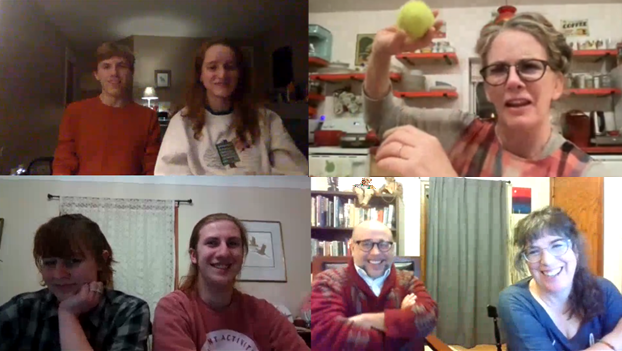
DAGNY: We do. Certain things get a lot of comments when we’re watching the show.
WILL: We do tend to talk while we’re watching it. And I think one thing I love about Little House is that it’s a show that has something for everybody, whether you take it completely in a spirit of sincerity and warmheartedness, or whether you think it’s a ludicrous campy show from the seventies that is just screamingly over-the-top, really almost every second of every episode. And I think in our family, both of those appeal to us equally.
MELISSA GILBERT: Absolutely, and they both play. I mean, I think we did episodes that were serious and that really hit a nerve and made people think about a lot of stuff. And then we did episodes that were just moronic.
WILL: Do you have any in mind?
MELISSA GILBERT: Well, werewolves!

MELISSA GILBERT: And the goat, of course. That stupid goat! Goats have their own thing, they all have minds of their own. And Fred the goat – ALL of the Freds who played Fred – just wanted to do what goats do. They didn’t want to be actors, they wanted to be goats. And the wranglers called the goats “Goatie,” and so the whole time we were shooting, all we heard was “Goatie, Goatie, Goatie, here Goatie, here Goatie, here Goatie, come here!” And there I was, trying to act, and not be distracted by someone offscreen yelling, “Come here, Goatie, Goatie, Goatie, Goatie!”
DAGNY: Like, they were screaming that as you were in the middle of filming the scene?
MELISSA GILBERT: Yes! And the goats were like, “Whatever, dude.” And I’m standing there going, “Why are we doing this? This is the dumbest episode in the history of television!”
[laughter]
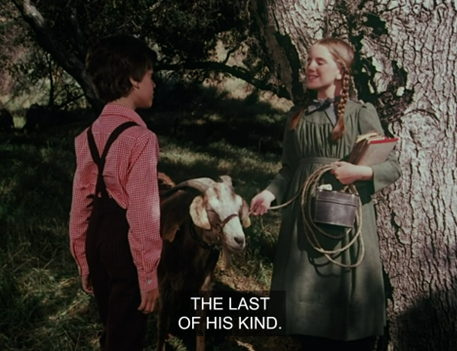
WILL: And yet people love it. Like, it’s one that everybody remembers. And then there are the ones I think are remembered for, for how traumatic they were. Like the one where you got locked in the basement – “My Ellen.”
MELISSA GILBERT: With the crazy mom.
WILL: Yeah, with the crazy mom who thinks you’re her daughter. The dead daughter.
MELISSA GILBERT: That was on last night. I was channel-surfing and it was on.
DAGNY: Yeah, that one was ALWAYS on.
MELISSA GILBERT: I turned it on for a couple seconds and went, “No.” It’s too scary. And I watch Paranormal.
WILL: If I had to pick a favorite episode, that might be it.
MELISSA GILBERT: That mom was weird. It was weird. That’s a weird episode. That’s a weird thing to write. Like, that came out of someone’s head. [EDITOR’S NOTE: “My Ellen” was written by Michael Landon.]

WILL: Did you know the writers? I mean, I know a lot of them were written by Landon himself, but did you get to see the creative process up front? Or did you not find anything out till you got the script?
MELISSA GILBERT: Well, I wasn’t involved, but I would run into the writers’ rooms and the offices early and say, “What are we doing next week?” You know, just because I wanted to know what was going on, and if I was gonna be in it a bunch or, you know, how much schoolwork I was going to have to deal with, or if I was going to be able to actually go back to regular school for a second, which pretty much never happened because I was kind of in everything. But I did want to know what was coming, whenever I could get the info.
DAGNY: That’s interesting, because one of the things our family talks about is how watching stories and TV has changed so much. And you know, when we were kids watching TV, you didn’t really have story arcs in the same way. And what is kind of funny about the blog is that we do track the arcs.
WILL: Yeah, and we’ve made it kind of a running gag to track if the stories could possibly have happened in sequence within the timeframe depicted. And it’s impossible. Absolutely impossible, because it’s like, there’s a Christmas episode, then it’s Fourth of July, then spring, then fall, then spring again, then Christmas again. We have three separate timelines that we’ve tracked, and we’re just three seasons in.

MELISSA GILBERT: Yeah, and I think I was pregnant with Rose for 18 months.

DAGNY: Yeah, but see, that’s the thing that I wonder about, being an actor in that situation. Acting in the late seventies, eighties, you weren’t necessarily connecting to it and the arc of the story, you were just wanting to know what’s happening next week, right?
MELISSA GILBERT: Well, also let’s bear in mind I was nine or ten.
DAGNY: That’s fair.
WILL: You didn’t approach these things super-critically.
MELISSA GILBERT: Yeah, if I was, if I was an adult, if it was now, I’d be saying, “What? Wait, what season? What are we doing?” ’Cause I keep, you know, I keep copious notes and track of things when I’m acting, and especially in something that takes place over time. But as a child, I was just like, “What do we get to do? And what don’t I have to do next week at school?”
DAGNY: That sounds actually kind of familiar with the kids sitting in front of you right now. They just wanna know if and when they can skip school.
WILL: Well, and as an audience member, I miss there being no arcs in dramatic TV series, you know, because then you can watch them out of order and they’re just as good. Whereas these days you watch TV shows out of order and have no idea what’s going on. You really have to commit to sitting down and watching a whole thirteen episodes or whatever. With Little House, you can pick stories at random and it gives you everything you need to know and makes sense. And most of them are really good.
MELISSA GILBERT: Oh, well, that’s nice. You say “most” – there were some clinkers in there.
WILL: Well, there are some doozies, it’s true.
DAGNY: But you know what? We always find something fun about them. That’s the part that I always enjoy.
MELISSA GILBERT: Well, sure. And sometimes it’s just the overacting.
DAGNY: Never from anyone present on this conference call, certainly!
MELISSA GILBERT [laughing]: No, no, no, no! But we had a couple good overacting regulars. Katherine MacGregor would definitely have seniority there.
DAGNY: Oh, yeah.
MELISSA GILBERT: So would Victor French.


MELISSA GILBERT: Alison sometimes would get a little . . .
DAGNY: But she’s Canadian, so that’s okay.
WILL: Well, her parents were, not her.
DAGNY: No, that’s Canadian enough.
MELISSA GILBERT: Yeah, she had to have some kind of outlet. Canadians are just so nice and dull. She had to get it out somewhere.
[laughter]

WILL: Do you mind if we go through a few more questions and let the kids ask some too?
MELISSA GILBERT: Sure.
WILL: Let’s do that, we’ll give our nervous little children a chance to speak.
MELISSA GILBERT: Very cool.
WILL: When we’re watching the episodes, they have no problem shouting stuff out. But . . .
MELISSA GILBERT: Well, that’s because I’m not sitting there. It’s actually mean for you to MAKE them do this now. [laughs]
AMELIA: You know, I think maybe you have it a little bit wrong here, Dad, because the four of us aren’t nervous, we’re just enjoying you two being as giddy as we’ve ever seen you before, so . . .
WILL: I suppose. Well, it’s magic. It’s magic!

AMELIA: Thank you for being here. We really appreciate it. This is really fun just to watch so far. Oh, and I wanted to mention also, on my drive home today I did drive on the Laura Ingalls Wilder Historic Highway.
WILL: And listened to Mankato radio, right?

AMELIA: I did, yes.
WILL: We are in Minnesota. And we have been to Walnut Grove once, but we live in the Twin Cities.
AMELIA: So the question I have to pose is, Little House is celebrated by some people and then also criticized by some people for reinforcing traditional gender roles and the role of women in the family. So, we’re wondering what your take would be on Little House as, like, a feminist or anti-feminist show. How do you see it?
MELISSA GILBERT: Well, my first . . . I mean, at a blink, as a friend of mine would say, my first reaction is that at its core it is a feminist show because it’s told from the perspective of a woman. It’s Laura’s story, which is why Laura did the narration, and the books were written by Laura. Her times were hardly feminist times. Women didn’t have the right to vote. And it was definitely a different time when we shot the show, from 1974 to 1984. You know, the country was going through a lot of changes, massive, radical changes. We were coming out of the Vietnam War, the Civil Rights movement, things were ablaze everywhere. The ERA was still being developed. Women were still burning bras. We were discovering that the free love of the sixties was, you know, was great for what it was, but was also landing a lot of people addicted to drugs and alcohol. And we were sort of paying the price for that. And we were in a massive recession. There were gas lines, lines to get gasoline.
WILL: Yeah. Some people who are old enough have been remembering those days now.
MELISSA GILBERT: Yeah, and you know, where we are now, it’s still not quite as bad as the recession in the seventies was. It was as brutal as it gets, at least until COVID. I think COVID was worse, but . . .
WILL: Yeah.
MELISSA GILBERT: All of that was going on around us. And Michael Landon . . . as much as through the lens of 2022, we would not consider him to be a feminist, or a progressive by today’s standards, really, really at that time WAS very progressive. Off-camera, you know, there were a lot of off-color jokes, a lot of things that made the grown-up women uncomfortable but made me go, “Oh, that’s what THAT is.” Well, I didn’t know. I learned a lot that way. But I think by and large, a lot of the stories we told were about women, ultimately, being partners to their men . . . specifically Ma and Pa, I mean, yes, she was relegated to pouring coffee, and I think Laura would much rather . . . even as an adult, Laura wanted to be more like Pa than like Ma. I know towards the end, Ma got a bit more marginalized, but she was always the voice of reason, she was always sort of the strong, steadfast one. She rarely lost her temper or her composure.
WILL: And Pa LISTENED to her, too. He took her seriously.
MELISSA GILBERT: And that as well. He treated her like a partner.

MELISSA GILBERT: And I think the relationship with Almanzo and Laura was the same. By the way, Almanzo’s correct name pronunciation is Al-MAN-zo.
[EDITOR’S NOTE: Here she pronounced the middle syllable to rhyme with can rather than with con.]
WILL: Really? How sad.
MELISSA GILBERT: Yeah, I know, it is sad. And he was named after someone in the family history in the Middle East named El Manzoor.
WILL: Hmm, interesting thing.
[EDITOR’S NOTE: In the Little House books, Almanzo Wilder does indeed make this claim. Some spoilsports have disputed it, though. Either way, al-Manṣūr in Arabic means “the Victorious.”]
MELISSA GILBERT: And Almanzo never called Laura “Beth.” Her nickname was “Mama Bess.” So that was kind of an interesting made-up thing.
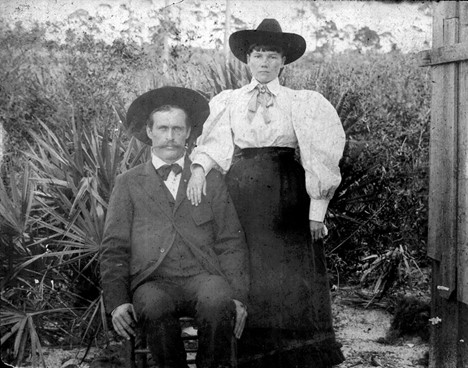
WILL: I never understand things like this. How do those details get lost in translation? Just, like, it’s such a small change, “Beth” versus “Bess.” . . . Why change it at all?
MELISSA GILBERT: I don’t know. How did we end up with a married Mary with a child? Mary never got married.
WILL: Yeah. I won’t even bring up the orangutan.
MELISSA GILBERT: Listen, the orangutan is probably closer to reality than some of the stories about people.

MELISSA GILBERT: Anyway, I think that, you know, though Ma was sort of relegated to a subservient posture, I don’t think that was actually the case. Through the lens of today, yes, that’s what it appears to be. But if you really break it apart and take it apart, she was Pa’s partner on our show.
WILL: Sometimes you wish the WRITERS had taken a little more interest in her, right?
MELISSA GILBERT: Yes, in the character, absolutely. Especially since she was the most trained actor with the most depth and ability out of all of us.

DAGNY: You know, if I think back to how this project started, which truthfully when it really launched, I was still working in the hospital during the pandemic. . . . We started watching Little House during COVID when everyone was all in lockdown together, and what’s really the most fun for me in watching this with the kids we have, born in the timeframes they’re born in, you know, 2002-plus, is that we basically have our Gen-X lens of understanding and appreciating it, and then their younger lens, and then also trying to think back to the timeframe the show was filmed in. And we have conversations about things like feminism. . . It’s interesting because the stories allow for a complexity of conversation that you don’t really get today, because what they’re really talking about isn’t obvious. Today everything’s fed to you through a firehouse.
WILL: It’s hard for young people to understand how something that wouldn’t be considered feminist today actually was, in the seventies, quite feminist, because it was pushing things forward.
MELISSA GILBERT: I think I can sum it up the best way by saying that if Michael had not passed, he would still be making television, and his television would be a reflection of what the times are. You would see his shows now with people who identify in different ways in regards to gender, sexual identity, and much more colorful. I mean, you know, we tried on Little House, but we were definitely not the most colorful cast on television.
WILL: But for the time, Little House went there.
MELISSA GILBERT: Yes. And I think Michael would still be going there.



MELISSA GILBERT: He’d be all in, especially since, you know, he’s got queer children.
WILL: Yeah, that just wasn’t feasible, to have gay stories on family network television in the 1970s.
MELISSA GILBERT: No, I think the first gay relationship on TV, I think was in Thirtysomething. Two men were seen together in bed for the first time. And that was the eighties.

[EDITOR’S NOTE: Melissa’s husband Timothy Busfield was one of the stars of Thirtysomething, and in fact has occasionally been referred to in the Walnut Groovy offices as “Thirtysomething Guy.”]

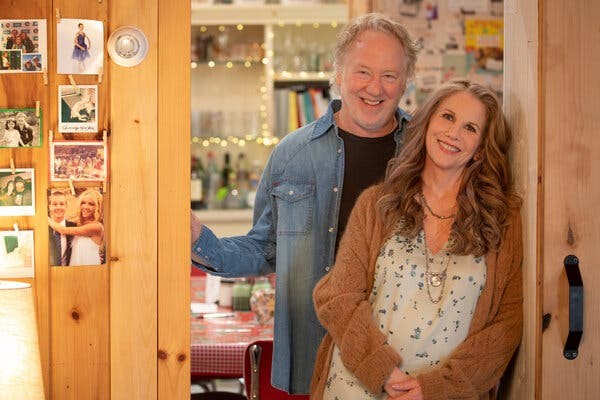
WILL: I remember that. And first, as horrible as our times are – and they are horrible in ways – but it does make you realize how far we’ve come as a culture that, that being gay is a lot more normal than it once was, and that there was a time when you couldn’t show LGBTQ people on television and –
MELISSA GILBERT: You know, we have come a long way. Well, I would say we’ve come a way. We have a ways to go. I think, I mean for me personally, I just have a stake in all of this. I have a nephew who was physically born a niece, and I have a niece who was physically born a nephew. I’m constantly navigating and learning, but I think these are stories that need to be told, and I know we would have told them if we had the chance. Listen, Rose Wilder Lane was bisexual!
WILL: Yeah. And a Libertarian conservative as well, right? I mean, she was a complex person.
MELISSA GILBERT: Yeah, politically, Libertarian conservative because she and her mother were very anti-New Deal, they felt people should pull themselves up by their bootstraps. But she got divorced, smoked cigarettes, wore pants, and traveled the world with a female “companion.”
WILL: Yeah. Well, a cool person in some ways.
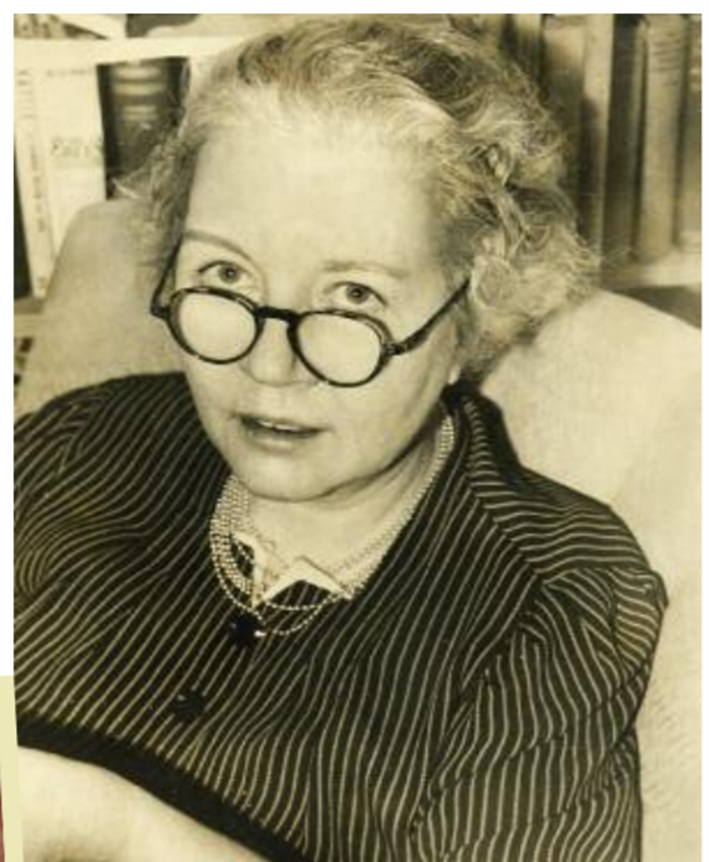
WILL: Do we wanna move on to the next question? Oh, sorry, Mimi, you’ve got a follow-up. Go for it.
AMELIA: Yeah, I have one more comment. I really appreciate the take on Michael Landon and the idea that he would have progressed with the times, because I think that’s something that, you know, as a student who studies gender and is a sociology major and is learning about a lot of the things in the world that haven’t been talked about enough in the past, I think younger people like Olive and myself call out a lot of things that happen on the show. We’re not super-tolerant and we’ll call it out. And I think we do that with generations of people who we would expect to have progressed more and learn from things changing during their lifetime. And so it’s nice to know that Michael Landon would have been the kind of person who would have impressed us rather than disappointed us in the modern age.
MELISSA GILBERT: I can tell you, he would. Because, with absolute positivity and candor, the one quality he possessed that I value above everything is curiosity. He would have wanted to know, and then he would have wanted to tell stories about it.
AMELIA: Yeah, it’s nice to know that about someone who’s not here to share that with us, you know.
MELISSA GILBERT: It’s hugely important. I get you.

MELISSA GILBERT: I mean, if you look at the political landscape today and you look at the most egregious characters in it, those are the people who believe they have nothing to learn and think they know everything already.
WILL: Agree one hundred percent. Alexander, wanna jump in and ask your question? He is the shyest of the family.
ALEXANDER: That’s not true. I’m very outgoing.
MELISSA GILBERT: It’s okay, it’s okay. Shy, reticent child, speak!
ALEXANDER: Okay, okay. Do you have any comment on the rumors they’re rebuilding the original set in Simi Valley for the fiftieth anniversary?
MELISSA GILBERT: I have no idea what they’re doing. I know there’s a Facebook page about it. . . . They haven’t talked to me about it. I have some irons in the fire about the fiftieth, but I can’t say anything yet until they actually come to fruition. But they don’t require rebuilding sets out there. So we’ll see what happens. I know we all want to honor it.
WILL: Yeah, that’s gonna be a big damn deal, whatever happens.
MELISSA GILBERT: Yeah, and we definitely know it.

DAGNY: I do wanna say as a short plug, and this is not attached to a question, but I did get some new ink yesterday at Lucky Llama, and a tattoo artist offered to give you a tattoo for free if you came out. Have you ever come to Minneapolis?
MELISSA GILBERT: Oh yes, I did the Little House musical at the Guthrie.
WILL: Yeah, I remember when you came to town. We weren’t as enmeshed in the world and lore of Little House then. We live and breathe it now.


MELISSA GILBERT: Does it have to be a Little House-themed tattoo? Because I don’t have one of those. I kinda wanna avoid it.
DAGNY: No, one of the tattoo artists was a big, huge fan. And I was talking about this interview when we were there yesterday and he goes, “If Melissa Gilbert comes to town, I will clear my books and give her a tattoo for free. Whatever she wants.”
MELISSA GILBERT: But . . . okay, you guys. First, let me . . . I’m gonna grab my phone because I wanna find something to show you while we’re talking. So just keep talking, I’ll find it.
DAGNY: Roman and Olive, are you guys getting the same freezing that we’re getting on our side?
ROMAN: Freezing? You mean, cold in the house?
DAGNY: No, no, the screen freezing up.
OLIVE: Just a little. It’s not too bad.
WILL: It’s a hell of a lot better than I expected, given how our tech rehearsal went the hour before she signed on.
DAGNY: I’m the IT. It went very well.
MELISSA GILBERT: All right, while I’m scrolling through my phone to show you this picture, please continue.
WILL: Okay, Roman, you wanna do your question?
ROMAN: Actually, it’s Olive’s turn.
OLIVE: It’s my turn!
WILL: Oh, we’re going by age, of course. He’s the youngest. Roman, it’s just you’ve eclipsed Olive in height, and so I forget.
OLIVE: So my question is, who is your favorite guest star to work with, and then why?
MELISSA GILBERT: Oh, I have to put my phone down for this. I think Ernest Borgnine. And I think mainly because when we shot “The Lord is My Shepherd,” we went away on location. So we went out of town. But I was the ONLY kid who went. So I was not only the little princess of the whole set, but I got to have this incredible experience of being a peer of all of these amazing actors.
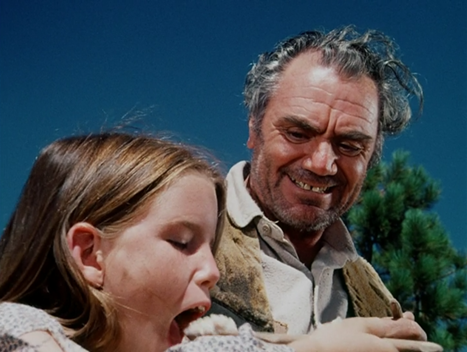
MELISSA GILBERT: All of these amazing sort of Daddy figures too.
DAGNY: Yeah, that’s right.
WILL: Yeah, we call it “Laura and Her Old-Man Besties.” You had a lot of them.
MELISSA GILBERT: I had so many. I had John Anderson . . . you know, the “Haunted House” episode.
WILL: Yeah, that’s one of my all-time favorites. That one breaks my heart, you know. That one’s really good. I love that one.

MELISSA GILBERT: Definitely had some weird grandpa issues. And her own grandpa, he was weird too.
ROMAN: Horse-killer!
WILL: Yeah. He was nuts.
MELISSA GILBERT: Well, I mean, yeah. A man who tried to burn himself alive?
WILL: Yeah, in front of his son? We watch the show on Freevee, where the episodes are always rated “seven-plus,” and it’s like, you don’t see a lot of self-immolations on TV shows for seven-year-olds.


MELISSA GILBERT: And the drug-addicted soldier one.
ROMAN: Granville Whipple!
WILL: Yeah!
MELISSA GILBERT: The dark incidents happened often. Maybe too often. That’s the thing about Little House, is we were able to tell a lot of, by and large, really hard-hitting stories, but it was done in a non-exploitative way, so it was considered “family television.” But I mean, when Richard Mulligan died of a morphine overdose after coming home from the Civil War, which by the way was a direct correlation to heroin and Vietnam –
WILL: Yeah.
MELISSA GILBERT: – but nobody noticed because it was a Little House on the Prairie. And everybody learned something in the story.

MELISSA GILBERT: But, Ernie Borgnine was one of my faves. And Ray Bolger was definitely one.
WILL: Yeah, in our project, we haven’t gotten to those yet. The Toby Noe episodes.
MELISSA GILBERT: Toby Noe. And then Red Buttons. So fun, so fun.
[WILL remains silent, regretting his previously expressed views about “Circus Man.”]


MELISSA GILBERT: I had a great time. Okay, I’m gonna show you this tattoo picture. Someone sent this to me. They found it on the Internet. This is some woman I don’t know where. Hold on.
[MELISSA GILBERT holds up a photo of a woman with a large tattoo of Laura’s face on her back.]
WILL: Oh – it’s really good!
MELISSA GILBERT: Are you kidding?
WILL: Well, it’s a good likeness.
DAGNY: It really looks like you, but it’s a little weird.
MELISSA GILBERT: No, I’m, I know. But it’s on her back!
WILL: Well, is that her back or her chest?
DAGNY: Doesn’t matter.
MELISSA GILBERT: Well, I HOPE that’s her back!
AMELIA: That’s her back and those are the straps. That’s a huge tattoo.
WILL: But it’s a very good likeness.
MELISSA GILBERT: Oh yeah, it’s a very good likeness. It’s just huge! Just a really large tattoo of me, on someone’s back!

WILL: Well, it takes over people’s lives, you know. Dags says I’m like Jack Nicholson in The Shining when I’m working on the blog. Anyways, I saw a Michael Landon tattoo once that was not very good. But you have to admire the commitment that went into it.
DAGNY: Honestly, you know how they say you shouldn’t tattoo anybody other than your kid’s names on your body? You probably also shouldn’t tattoo other people’s faces on your body.
MELISSA GILBERT: Probably not a good idea, yeah!
DAGNY: Well, I didn’t get you on my shoulder. It’s just a butterfly.
MELISSA GILBERT: I’m actually very relieved about that.
WILL: Well, I would never describe this as a normal family, but we haven’t plunged into fandom quite that much. There’s still time, of course.
MELISSA GILBERT: Well, and actually, what is normal?
WILL: Right. And who wants to be it?
MELISSA GILBERT: Right.
AMELIA: I will say, as soon as I muted us, Alexander said we should get that as a matching sibling tattoo for the four of us.
DAGNY: That would be hilarious.
MELISSA GILBERT: I’m, like . . . I’m going to say this in all sincerity. I’m begging you. Please don’t. Don’t do it.
AMELIA: We’ll take it into consideration.
MELISSA GILBERT: Yeah, take it into consideration. And if you do do it, make it as TINY as possible. I’ve already had two removed, so I’m way ahead of you.
WILL: There’s a lot of that going around, it seems. Okay, Roman, your question.
ROMAN: Okay, first off, I’d just like to say I can’t believe you forgot the dead children, Stepfather. I raised my hand at the time, but you didn’t call on me.
MELISSA GILBERT: Yeah. So many dead children!
WILL: I can’t believe it either. I was so nervous, I just said stupid things.
ROMAN: Yeah, I was like . . . the blind school? That burning building?
MELISSA GILBERT: Yeah, we all had babies. None of us could have a son. They all died.
WILL: Well, I also think it’s because we just watched “Blizzard” last night and no kids died in that one, only adults.

MELISSA GILBERT: Isn’t there a kid who dies of a plague or some illness?
WILL: Yeah, that kid.
ROMAN: His mom too. The dad goes insane.
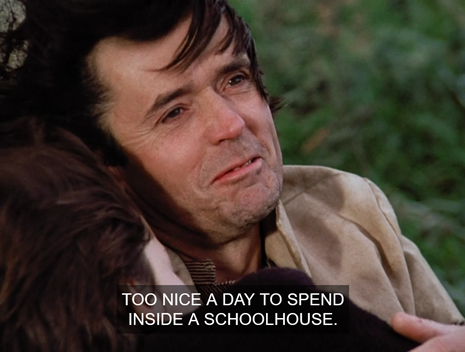
MELISSA GILBERT: And wasn’t there also a kid whose dad beat him to death, an alcoholic dad who beat his kid to death? Or . . . no, we took him away, didn’t we?
WILL: That’s right. The kid lived, and the alcoholic was redeemed at the end of that one. What was the title? “Child of Pain.”

MELISSA GILBERT: But Mary . . . well, Mary’s baby did die. That was a big mess.
WILL: Yeah, smashed through the window. The “baby battering ram.”


WILL: You know, it’s the dark ones. . . . This is the thing. I think some people remember the feel-good ones, you know. I remember the feel-BAD ones. I remember the scary ones.
MELISSA GILBERT: Then you remember “Sylvia.”
WILL: Oh yes, of course, the rapist mime.
MELISSA GILBERT: There were a lot of movies with masked murderers then, and later.
WILL: Well, it probably gave some people ideas.
MELISSA GILBERT: It would definitely make you pause before going to the blacksmith’s, that’s for sure!
[laughter]

WILL: Yeah. Roman, did you ask your actual question?
ROMAN: No, I didn’t. I just made the dead-child observation first.
WILL: Well, ask it!
ROMAN: I think this one might be very thought-provoking. If you need time to think about it, that’s okay. But did you ever have to stop the cameras because the horse took a shit?
MELISSA GILBERT [laughing]: Not so much horse shit as horse pee. And if you’ve been around horses, you know, for a male horse to pee, he has to . . . let it out. Let the ween out.
WILL: Yeah.
DAGNY: Yeah. Ween.
MELISSA GILBERT: And when I say “out,” I mean, like . . .
[MELISSA GILBERT approximates the size of a horse penis with her hands.]
MELISSA GILBERT: So, you know, we’d be standing and crying and talking about God with Reverend Alden . . . and there’s a giant horse penis behind us. [laughs] Generally, there would be a lot of laughter and then, “I’m sorry, Half-Pint, cut, cut, cut.” I’d turn around and there’s the horse peeing and I’d go, “Oh, come on.”
[laughter]

AMELIA: We have a picture of Olive on a horse as a child with a similar incident occurring. It’s one of our favorite family photos.
WILL: We put it in a family calendar for Christmas. Seriously. We didn’t notice.

MELISSA GILBERT [laughing]: I love that. I love that. So yeah, the peeing was actually way more . . . AGGRESSIVE in a way.
[laughter]
WILL: Yeah, you know, another one we just watched – ’cause we’re watching them in order – and we just did “The Hunters,” which I think is probably my very favorite Laura story. Where you shoot Pa in the chest. You know, like, for a show that wasn’t really known for dramatic irony, that one really yanks the rug out from under you. You do not expect it at all. And it’s like, [as LAURA:] “Oh, I’m not bad luck after all” . . . BOOM!
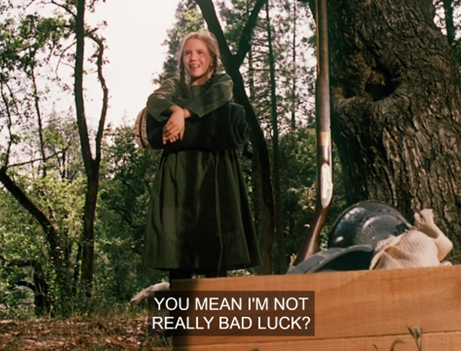
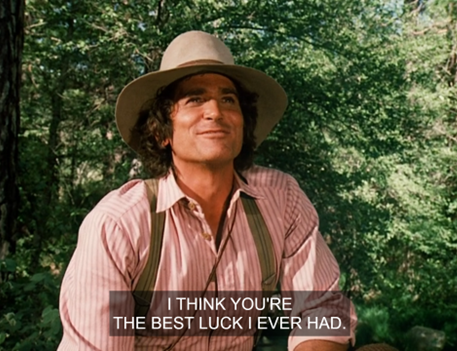


MELISSA GILBERT: Yeah, is that the one with Burl Ives?
WILL: Yes, it is the one with Burl Ives. Yep.
MELISSA GILBERT: Yeah. And Johnny Crawford!
WILL: Yeah, yeah! And we just looked him up. I didn’t even know he was a singer. I guess he was, you know, a bandleader and a really talented singer, right?
MELISSA GILBERT [smiling]: He and his band played my ex-husband’s forty-fifth birthday party. Yeah, yeah, yeah.
DAGNY: That’s cool. They’re awesome!
WILL: Yeah, from the videos, yeah. He was really talented.

WILL: But we did notice . . . it’s rare, but we did notice some horseshit in “The Hunters,” and it was when, you know, the horse crosses the river and a big old pile comes flying out. What I think is funny is that it didn’t happen more often, considering how many horses you had on the show.
DAGNY: And goats!
WILL: Yeah, and that stupid cow that killed its baby.
MELISSA GILBERT: A what now killed his baby?
WILL: It’s in “Going Home.” It’s where the tornado comes and Charles works to get the cow and the calf out of the barn. But the cow leads the calf back into the barn and it gets killed in the storm. I hate that cow.
MELISSA GILBERT: Sounds like a horrible cow. I don’t even remember that.
WILL: It’s my least favorite character. Oh! Do you remember the name, though? I think you only said it once. The name of the cow.
MELISSA GILBERT: Um . . . Betty?
WILL: “Spot.”
MELISSA GILBERT [incredulous]: “Spot”?
WILL: Yeah.
MELISSA GILBERT: Who named that cow? That’s the dumbest possible name.
WILL: I presume Laura did. I presume you did!
MELISSA GILBERT: Well, she was dumb. I mean, “Spot”!
DAGNY: When you consider the largeness of a beast like a cow, it’s really not a Spot at all.

WILL: Well, we won’t torture you with, like, questions about the minutiae of the plots, because again, I do think some fans imagine you remember more details like that than you do. You know, mistaking you for the character.
MELISSA GILBERT: Oh, absolutely. And why, exactly? Yeah, there might be some items I remember, but . . .
DAGNY: If you would like, you can always take Roman and Will on tour with you, because they’ve got a good sense of all of the historical references and can do research for you. I’m very forgetful.
WILL: No, so am I. The problem with me is, I really get into the episode we’re on this week, and then I forget everything else. Like, I didn’t even remember that any kids died on the show, so what do I know? I don’t pretend to be a Little House expert. But we would like to hear about, and I didn’t even know about this until this week, what you’re doing now, with your Modern Prairie.
MELISSA GILBERT: Oh, yeah. Modern Prairie is a lifestyle website that we launched in May, and it’s basically a place for primarily people who identify as female and are 45 and older, and are experiencing all of the stuff that happens with being a female of a certain age. All of the bodily changes, the emotional changes, the life reassessments. It’s a forum to discuss all that stuff. But it’s also a place to celebrate it.


And we’ve curated products that I really love, and we’re starting to manufacture our own things, and we have cooking classes and we have life-coaching classes, and tomorrow we have a watercolor class. And my best friend has been a part of it now, doing seminars on grief and grieving. It sort of started as an experiment that’s starting to gain traction. We call ourselves the anti-Goop.
DAGNY: I love it.
MELISSA GILBERT: Because you will never find a seven-hundred-dollar face cream there. There’s no need to steam your vadge! Just let it be, it’s perfect as it is. Don’t try and fix it, it works. Leave it alone.
[laughter]

MELISSA GILBERT: Um, so this is who we are, but it really more than anything is a place to give us space to validate ourselves, because I found that as I was getting older and talking to women who are my age and older that, like, ultimately we get pigeonholed into two spots. We’re either that cute little sweet old lady or that horrible mean old witch. And there’s so much more to us, and we’re just kind of discounted. And then the other thing is, commerce-wise, we’re the spenders.
DAGNY: I know.
MELISSA GILBERT: Right? By the time you get to be this age, you’re more likely to have a little disposable income. But we just had a meeting with a department store about carrying a lot of our stuff, and they said, well, you know, we’re actually focusing on millennials. And my first thought was, that is so stupid, because the millennials come to us for the money to buy the things you’re selling!
WILL: Yeah, exactly. I’ve said that many a time. I don’t understand why they market to people who need money from their parents to make purchases.
MELISSA GILBERT: Right, exactly so. I mean, present company excluded, of course.
DAGNY: Oh, we never give our kids any money.
MELISSA GILBERT [laughing]: Well, of course not. Why would you? They’re clearly horrible people, so . . .
DAGNY: Right! Well, that’s really interesting. When you mentioned the grief-and-loss aspect, you could see the kids chuckle, because that’s professionally where I sit, as a social worker with grief and loss.
MELISSA GILBERT: Really?
DAGNY: For a long time, yeah.
MELISSA GILBERT: Oh well, yeah, then we have a lot to discuss, ’cause I’m an eleventh-hour pediatric hospice volunteer.
WILL: Oh, wow. Pediatric hospice. That’s wonderful.
DAGNY: But I think this sounds really amazing, not only from a world-of-women perspective, but also in normalizing talking about grief, loss, and death in a way we can actually bring our communities. So they can get closer to having more comfort with those conversations as well.
MELISSA GILBERT: One hundred percent. We are probably the worst grievers in the world. America. Well, what we did was, you know, during the Civil War, it was the first time really that the majority of Americans had to deal with not burying their loved ones on their own property immediately. And so that’s where formaldehyde and the preservation of bodies was developed so people could get something shipped home. So it actually removed the . . . bathing and washing and preparing the body out of the house, and it distanced it. And now we’ve become this distanced community when it comes to loss, which is . . .
WILL: It’s unnatural, isn’t it? It’s unnatural.
DAGNY: Yeah.
MELISSA GILBERT: It’s very unnatural, and it’s a much longer conversation for us to have. If you want to even explore pediatric end of life, Children’s Minnesota in Minneapolis, I think . . . It has the best end-of-life and palliative care for children that I’ve seen in this country, and I’ve been volunteering for a long time. I spent a lot of time there.
DAGNY: Yeah, even with the opening of the Crescent Cove, the inpatient hospice that actually just opened two years ago for peds is amazing. It’s a beautiful spot.
WILL: That hospital is just wonderful for anything. I mean, Olive was sick when she was two with E. coli and was on kidney dialysis there. And she made it. But it’s like, I don’t know how they do that work, the professionals who care for those children and how they have the strength to do it. But thank God for them.
MELISSA GILBERT: Yep, agreed.
WILL: Well, this has been an amazing pleasure. Thank you so much for taking the time. We could talk all night, but this is a project that we’re gonna be doing probably for several years because we’re going slowly. But we’d love to talk to you again, maybe down the road about some of the later seasons, so . . . ?
MELISSA GILBERT: Absolutely.
WILL: Thank you. Like I said, I could not believe that you would have read it and liked it. And I was really honored by that.
MELISSA GILBERT: Oh, actually I’ve gotten so many chuckles reading it. It’s insightful, but also really, you get the humor in it.
WILL: Thank you. Well, you know, it’s about Little House, but it’s also about us, and I really wanted to capture the way our family interacts with each other now, because, you know, we’re not gonna be like this forever. We’ve already got one kid out of the house and the others are getting ready to go themselves, so . . .
MELISSA GILBERT [nodding]: I get it.
WILL: But anyways, thank you so much, you are just wonderful. And thank you for all of the pleasure over the years . . . you know, literally our whole lives. Little House really stands up, and so do you.
MELISSA GILBERT: No, thank you guys so much.
WILL: Thank you, Melissa Gilbert. We’ll give you a round of applause, and you know, we’ll hope to talk to you again someday. Thank you so much!
MELISSA GILBERT: Thank you guys. Have a wonderful, wonderful Thanksgiving.

Congratulations on this wonderful interview. Now that I think about it, I don’t even know if I would call it an “interview”; it’s almost like a conversation with an old friend. I’m now also pretty proud to be known as a hybrid!☺️👒
LikeLiked by 1 person
I am still waiting for you to recap these episodes:
The Hunters
Blizzard
I’ll Ride the Wind
Quarantine
Little Women
Injun Kid
To Live with Fear
The Wisdom of Solomon
The Music Box
The Election
Gold Country
LikeLiked by 1 person
Thank you, Patrick. Coming soon!
LikeLiked by 1 person
Interestingly enough, there’s a story similar to “My Ellen” in the book Magic for Marigold by L.M. Montgomery (the author of Anne of Green Gables)….grief stricken mother thinks the protagonist is her dead daughter and doesn’t let her leave.
LikeLiked by 1 person
Good Lord, really? That’s an example of worlds colliding if I ever heard one. I will make a mental note for when we do that story next season – it’s a family favorite. (Busby Forever!)
LikeLike
Yup, the chapter is titled “One Clear Call”
The book is available online for free.
LikeLiked by 1 person
Zaldamona, I originally forgot your note when I wrote the “My Ellen” recap . . . but it’s only about a week later and I’ve updated the post now. THANK YOU for this little jewel of a fun fact!
LikeLike